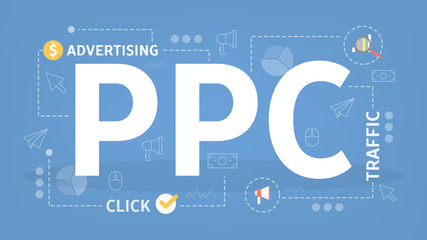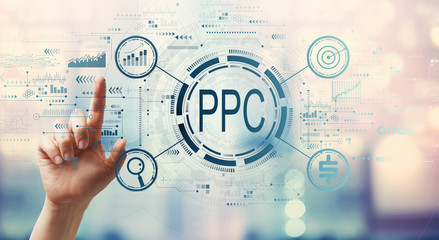Pay Per Click (PPC) advertising is a powerful digital marketing strategy that allows businesses to drive targeted traffic to their websites and pay only when users click on their ads. For small businesses with limited marketing budgets, PPC can be a cost-effective way to increase brand visibility, generate leads, and drive conversions. In this article, we will explore the benefits of PPC advertising for small businesses and provide valuable insights to help you maximize the effectiveness of your PPC campaigns.
Table of Contents
- Introduction: The Power of PPC Advertising
- Understanding Pay Per Click (PPC)
- Benefits of PPC for Small Businesses
- Setting Up Your PPC Campaign
- Conducting Keyword Research
- Creating Compelling Ad Copy
- Designing Landing Pages for Conversion
- Monitoring and Optimizing Your Campaign
- Budgeting and Cost Management
- Hiring PPC Professionals
- Conclusion
- FAQs
1. Introduction: The Power of PPC Advertising
In today’s digital landscape, online visibility is crucial for the success of small businesses. PPC advertising offers an effective way to increase your online presence, attract potential customers, and achieve your business goals. Unlike traditional advertising methods, PPC allows you to specifically target users who are actively searching for products or services related to your business.
2. Understanding Pay Per Click (PPC)
PPC advertising is a model where advertisers bid on keywords relevant to their business and create ads that are displayed on search engine results pages or other relevant websites. Advertisers only pay when a user clicks on their ad, hence the name “pay per click.” This model ensures that you are only paying for actual engagement with your ads, making it a cost-effective marketing strategy.

3. Benefits of PPC for Small Businesses
- Cost Control: With PPC, you have full control over your budget. You can set a daily or monthly spending limit, ensuring that you don’t exceed your marketing budget. This level of control allows small businesses to allocate their resources effectively and measure their return on investment (ROI).
- Targeted Reach: PPC advertising allows you to target specific keywords, demographics, locations, and even the time of day when your ads are displayed. By ensuring that your ads are displayed to the most pertinent audience, this degree of targeting improves your chances of generating qualified leads.
- Immediate Results: Unlike other marketing strategies that may take time to generate results, PPC advertising can provide immediate visibility and traffic to your website. Once your campaign is set up, your ads can start appearing in search engine results within a short period, driving potential customers to your site.
- Measurable Performance: PPC solutions give you access to powerful analytics and tracking tools that let you evaluate the effectiveness of your campaigns. Metrics like clicks, impressions, click-through rates (CTR), and conversions can all be tracked. With the help of this data, you can assess the effectiveness of your efforts and take informed decisions that will improve your outcomes.
- Flexibility and Scalability: PPC campaigns offer flexibility and scalability for small businesses. You can easily adjust your campaigns, pause or resume ads, modify ad copy, and experiment with different keywords and targeting options. As your business grows, you can scale your PPC efforts to reach a larger audience and drive more conversions.
4. Setting Up Your PPC Campaign
To set up a successful PPC campaign, follow these steps:
- Choose the Right Platform: Select the PPC platform that aligns with your business objectives and target audience. Google Ads and Bing Ads are popular choices for search engine advertising, while social media platforms like Facebook and LinkedIn offer PPC options.
- Define Your Campaign Goals: Clearly define your campaign objectives, whether it’s increasing website traffic, generating leads, or driving sales. Having specific goals will help you structure your campaigns and measure success accurately.
- Set a Realistic Budget: Determine your budget based on your marketing goals and the competitiveness of your industry. Start with a modest budget and gradually increase it as you gain insights and optimize your campaigns.
5. Conducting Keyword Research
Choosing the right keywords is an essential part of PPC advertising. Choose relevant search terms that your intended audience is likely to use. Use keyword research tools such as Google Keyword Planner or SEMrush to discover high-volume keywords with reasonable competition. Include a mix of broad match, phrase match, and exact match keywords to reach a broader audience while maintaining relevance.
6. Creating Compelling Ad Copy
Crafting compelling ad copy is essential to attract clicks and stand out from your competitors. Write concise and engaging headlines that capture attention. Highlight unique selling points, special offers, or discounts to entice users to click on your ads. Include relevant keywords in your ad copy to improve relevance and quality score.
7. Designing Landing Pages for Conversion
The landing page is where users are directed after clicking on your ads. Create dedicated landing pages that align with the ad’s message and provide a clear call-to-action (CTA). Optimize your landing pages for conversions by ensuring fast loading times, clear and persuasive content, and a seamless user experience.
8. Monitoring and Optimizing Your Campaign
Keep an eye on the effectiveness of your PPC advertising and make data-driven adjustments. Analyze metrics such as CTR, conversion rates, and cost per conversion. Identify underperforming keywords or ads and make adjustments accordingly. Test different ad variations, landing page designs, and targeting options to improve campaign performance.
9. Budgeting and Cost Management
Keep a close eye on your budget and costs to ensure efficient spending. Monitor your campaigns’ performance to identify any budget constraints or areas of overspending. Adjust your bids, pause low-performing keywords, and reallocate your budget based on the data and insights you gather.
10. Hiring PPC Professionals
If managing PPC campaigns becomes overwhelming or time-consuming, consider hiring PPC professionals or agencies. PPC experts can help you develop and execute effective strategies, optimize your campaigns, and maximize your ROI. Their expertise and experience can save you time and resources while ensuring the success of your PPC advertising efforts.
Conclusion
Pay Per Click (PPC) advertising presents small businesses with a powerful tool to reach their target audience, increase brand visibility, and drive conversions. By understanding the benefits of PPC, setting up effective campaigns, conducting keyword research, creating compelling ad copy, designing conversion-focused landing pages, and continuously monitoring and optimizing your campaigns, you can harness the potential of PPC advertising to grow your small business and achieve your marketing goals.

FAQs
1. How much does PPC advertising cost for small businesses?
The cost of PPC advertising for small businesses varies depending on factors such as industry competitiveness, target keywords, and campaign objectives. You have control over your budget and can start with a small amount. It’s important to allocate your budget effectively and measure your ROI to ensure cost-efficient PPC campaigns.
2. How long does it take to see results from PPC advertising?
PPC advertising can generate immediate results in terms of increased website traffic and visibility. However, it may take some time to optimize your campaigns and achieve desired conversions. Continuous monitoring, testing, and optimization are essential to improve performance over time.
3. Should I focus on search engine PPC or social media PPC?
The choice between search engine PPC and social media PPC depends on your business objectives and target audience. Search engine PPC is great for capturing users actively searching for your products or services, while social media PPC offers targeting options based on demographics, interests, and behaviors. Consider your target audience and marketing goals to determine the most suitable platform(s) for your business.
4. How often should I monitor and optimize my PPC campaigns?
Regular monitoring and optimization are crucial for PPC success. Aim to review your campaigns at least once a week to assess performance, identify areas for improvement, and make necessary adjustments. Continuous optimization ensures that your campaigns stay relevant, cost-effective, and aligned with your goals.
5. Can I run PPC campaigns with a limited budget?
Yes, PPC campaigns can be run with a limited budget. You have control over your spending and can set daily or monthly limits to stay within your budget. It’s important to focus on highly relevant keywords, create compelling ad copy, and optimize your campaigns to make the most of your budget and achieve optimal results.




